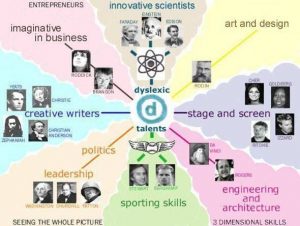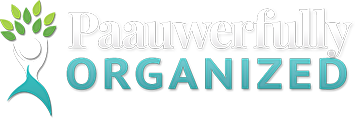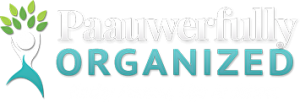June is National Rebuild Your Life Month. One great way to do that is to discover your strengths and springboard from the firm foundation that this can provide for you.
Years ago, I read an excellent book called Now, Discover Your Strengths, by Marcus Buckingham and Donald Clifton. The authors defined talents in a different way than I had thought of before.
“Talent: any recurring pattern of thought, feeling or behavior that can be productively applied.”
Here are some examples of talent as they defined it: inquisitive, charming, persistent, responsible, dyslexic. All of these qualities can be productively applied.
Wait a minute…dyslexic?
I had never thought of dyslexia as being a talent … until I read this book. The authors shared an example of how David Boies — a celebrated trial attorney and one of the best litigators of his time in the United States — used dyslexia to his advantage. He was recruited as counsel for the US Government’s antitrust suit against Microsoft, in part because of his gift of dyslexia.
Why did he consider dyslexia to be a talent? Because his dyslexia caused him to avoid using long and complicated words. He knew what these words meant, but didn’t use them in his arguments because he was afraid that he’d mispronounce them. This need to rely on simple words made his arguments easy to follow. He also came across as a common-sense “man of the people,” which naturally helped him win over a judge and jury.
 The authors of this book point out that “for David Boies, dyslexia is a talent because he has figured out a way to apply this recurring pattern productively, and by combining it with knowledge and skills, to turn it into a strength.”
The authors of this book point out that “for David Boies, dyslexia is a talent because he has figured out a way to apply this recurring pattern productively, and by combining it with knowledge and skills, to turn it into a strength.”
Many people never fully utilize their natural gifts and talents because they don’t find the proper way to express them in the world, or perhaps they don’t even recognize the talents they have.
Realized or not, we all have natural talents that we feel passionate about. These talents may feel so natural that you don’t even realize how they make you unique and special. Your combined unique talents and capabilities create an experience for others that they will not be able to find anywhere else.
“Most Americans do not know what their strengths are. When you ask them, they look at you with a blank stare, or they respond in terms of subject knowledge, which is the wrong answer.” –Peter Drucker
What do you focus on?
Buckingham and Clifton did extensive research which found that only 41% of Americans believed that the key to success was to focus on strengths rather than weaknesses. In Japan and China, only 24% of those surveyed said they’d focus on strengths. The rest of the population believed that the key to success was found by focusing on weaknesses and trying to improve them.
The problem is that we tend to get what we focus on. If we focus on our weaknesses, what does that mean? Here’s a startling finding in the studies they conducted:
Parents were asked which grade they would spend the most time discussing with their child if they came home with the following report card:
A in English
A in Social Studies
C in Biology
F in Algebra.
The results: 77% of the parents said they would spend the most time discussing the failed Algebra grade.
The authors did a search to determine how many studies had been done on depression. They found more than 40,000 studies on depression, versus only about 40 studies that had been conducted on joy and fulfillment.
Our balance is off. Our perspective has been so skewed toward weakness and illness and we need to put much greater focus on strength and health. If our weaknesses interfere with our strengths, we need to develop strategies to manage around them.
Although a focus on weakness may help us prevent failure, it won’t help us to reach excellence. We reach excellence only by understanding and cultivating our strengths.
“Criticism has the power to do good when there is something that must be destroyed, dissolved, or redirected, but it is capable only of harm when there is something to be built.” –Carl Jung, Swiss psychologist
Identify Your Talents
Here are some key characteristics that mark talent as the authors define it:
 You anticipate activities that utilize your talent. Take note when doing an activity. Are you thinking present tense — When will this be over? … or future tense — When do I get to do this again?
You anticipate activities that utilize your talent. Take note when doing an activity. Are you thinking present tense — When will this be over? … or future tense — When do I get to do this again?
- Talent brings with it consistent & predictable near-perfect results.
- Talent generates yearnings – spontaneous reactions from within, and a drive to repeat the behavior or feeling.
- When talent is present, rapid learning takes place. While using your talent, you learn at a much more rapid speed than others around you. You can’t wait to take on the next assignment. You work or read ahead before the next assignment is even made.
- You feel a strong sense of satisfaction when using your talent. It feels good!
Our dominant talents contain the promise of developing a strength. A strength is defined as a combination of talents, skills and knowledge that are consistently and productively applied to achieve a desired result.
The authors of Now, Discover Your Strengths pointed out that “unfortunately, most of us have little sense of our talents and strengths. Instead, guided by our parents, our teachers, our managers and psychology’s fascination with pathology, we become experts in our weaknesses and spend our lives trying to repair these flaws, while our strengths lie dormant and neglected.”
 Authors of this book identified a total of 34 dominant talents. The StrengthsFinder Profile (now called the Clifton Strengths assessment) identifies your top 5 talents.
Authors of this book identified a total of 34 dominant talents. The StrengthsFinder Profile (now called the Clifton Strengths assessment) identifies your top 5 talents.
The profile was designed to help you pinpoint your signature themes, but should never be the only means by which you identify them. If you think you have a particular talent, the authors suggest that you monitor it over the next two months by jotting down some notes as you observe your own behavior and feelings as they relate to a particular talent.
Manage Your Weaknesses
The authors define a weakness as “anything that gets in the way of excellent performance.” They suggest five strategies to manage weaknesses as you strive to build your life around your strengths:

- Hunker down and get a little better at it (whatever the weakness is).
- Design a support system that will stop you from worrying about a weakness so you can spend more time thinking about how to refine a strength. For example, if you are not naturally organized, your support system could be as simple as a weekly appointment with yourself to clear your desk and file papers away every Friday before you leave the office.
- Use one of your strongest themes to overwhelm your weakness.
- Find a partner to handle the areas that are not strengths for you.
- Acknowledge that this is not an area of strength for you and simply stop doing it.
Use the talents you were given.
At the time you were born you were given an amazing gift. You are an artist, and your life is the canvas. Make something beautiful.
Here’s how to tap into the power of the talents you were gifted with:

- Be clear about your own unique talents and core values.
- Develop needed skills that will enable you to use your talents in a way that honors your values and helps you to live an on-purpose life.
- Add knowledge – both factual and experiential or practical.
The clearer you are about your own natural talents and how you can combine those with your values, the more you can streamline and strengthen your efforts. Clarifying your natural talents will help you stay focused on what skill sets and knowledge you need to develop.
Whatever you set your mind to, you’ll be most successful and feel most fulfilled when you craft your role to play to your most dominant talents.
Would you like help clarifying your talents and values, or the skills and knowledge you need to develop so you can move toward honoring your purpose? Let’s schedule a no-cost, no-pressure Discovery Call today.
Additional Resources
Blog: The Power of Passion in Your Work
Blog: Finding Your Purpose
Blog: Power in Your Purpose
Blog: Create What You Want
Blog: The Special “Secret Sauce” to Success
Guide: Creating New Habits
Guide: Living with Purpose
Guide: Cultivating Happiness: Living Life on Your Terms
Self-Paced Course: Guide to Getting Motivated & Achieving Your Goals










